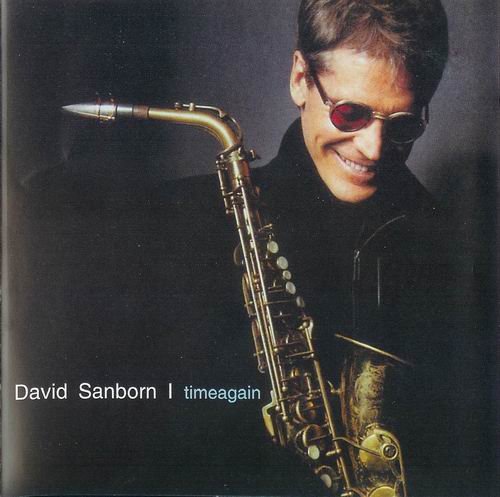Symphonieorchester des Bayerischen Rundfunks, Bernard Haitink - Mahler: Symphonie Nr. 3 (2017) [HDTracks]

Artist: Symphonieorchester des Bayerischen Rundfunks, Bernard Haitink
Title: Mahler: Symphonie Nr. 3
Year Of Release: 2017
Label: BR-Klassik
Genre: Classical
Quality: FLAC (tracks) [24Bit/48kHz]
Total Time: 01:41:28
Total Size: 0,99 GB (d.booklet)
WebSite: Album Preview
Recorded: München, Philharmonie im Gasteig, 15.–17. Juni 2016.Title: Mahler: Symphonie Nr. 3
Year Of Release: 2017
Label: BR-Klassik
Genre: Classical
Quality: FLAC (tracks) [24Bit/48kHz]
Total Time: 01:41:28
Total Size: 0,99 GB (d.booklet)
WebSite: Album Preview
Gustav Mahler's Third Symphony still ranks today as one of the greatest and most powerful creations of the Late Romantic period. The huge symphony, longer and more monumental than the others and containing texts from the collection of poems by Clemens Brentano and Achim von Arnim entitled “Des Knaben Wunderhorn”, was composed over a period of four years from 1892 to 1896, and especially during the summers of 1895 and 1896, which Mahler spent at the Attersee in Austria. Following performances of several individual movements of the symphony, the complete work was premiered on June 9, 1902, at the 38th “Tonkünstler Festival” in Krefeld. Mahler conducted the Städtische Kapelle Krefeld and Cologne’s Gürzenich Orchestra at this exciting event. It was one of his greatest successes, and his contemporaries were deeply impressed. Between 1902 and 1907, the composer conducted his Third Symphony a further 15 times.
Of the six powerful movements, the slow fourth one requires not only a large orchestra but also a mezzo-soprano solo for a setting of the “Midnight Song” (“O Man! Take heed!”) from Friedrich Nietzsche’s poetical-philosophical “Thus Spoke Zarathustra,” while in the cheerful fifth movement the mezzo-soprano soloist is joined by a children’s choir and a female chorus for the song Es sungen drei Engel from “Des Knaben Wunderhorn”. The symphony is a huge challenge for all its performers, and this concert recording of June 2016 has a prestigious line-up: guest conductor Bernard Haitink with the Symphonieorchester des Bayerischen Rundfunks, the Augsburger Domsingknaben and the Frauenchor des Bayerischen Rundfunks; the solo parts are sung by Gerhild Romberger.
This Munich concert event of summer 2016 is now being released on 2 CDs by BR-KLASSIK – a very recent interpretation of one of the most important compositions of the international symphonic repertoire.
Of the six powerful movements, the slow fourth one requires not only a large orchestra but also a mezzo-soprano solo for a setting of the “Midnight Song” (“O Man! Take heed!”) from Friedrich Nietzsche’s poetical-philosophical “Thus Spoke Zarathustra,” while in the cheerful fifth movement the mezzo-soprano soloist is joined by a children’s choir and a female chorus for the song Es sungen drei Engel from “Des Knaben Wunderhorn”. The symphony is a huge challenge for all its performers, and this concert recording of June 2016 has a prestigious line-up: guest conductor Bernard Haitink with the Symphonieorchester des Bayerischen Rundfunks, the Augsburger Domsingknaben and the Frauenchor des Bayerischen Rundfunks; the solo parts are sung by Gerhild Romberger.
This Munich concert event of summer 2016 is now being released on 2 CDs by BR-KLASSIK – a very recent interpretation of one of the most important compositions of the international symphonic repertoire.
Tracklist:
Gustav Mahler (1860–1911)
Symphonie Nr. 3 d-Moll für Alt-Solo, Knabenchor, Frauenchor und Orchester
1 I. Kräftig. Entschieden 35:49
2 II. Tempo di Menuetto. Sehr mäßig. Ja nicht eilen! 10:06
3 III. Comodo. Scherzando. Ohne Hast 17:53
4 IV. Sehr langsam. Misterioso. Durchaus ppp 9:34
5 V. Lustig im Tempo und keck im Ausdruck 4:26
6 VI. Langsam. Ruhevoll. Empfunden 23:40
*********************************
Gerhild Romberger, mezzo soprano
Augsburger Domsingknaben
Reinhard Kammler, chorus master
Frauenchor des Bayerischen Rundfunks
Yuval Weinberg, chorus master
Martin Angerer, post horn
Symphonieorchester des Bayerischen Rundfunks
Bernard Haitink, conductor
![Symphonieorchester des Bayerischen Rundfunks, Bernard Haitink - Mahler: Symphonie Nr. 3 (2017) [HDTracks]](https://img.israbox.com/uploads/posts/2018-05/1527086227_back.jpg)







![Ravi Ramsahye PROTOTYPE - Sunglint (2026) [Hi-Res] Ravi Ramsahye PROTOTYPE - Sunglint (2026) [Hi-Res]](https://www.dibpic.com/uploads/posts/2026-02/1770729667_folder.jpg)
![Charles Mingus - Mingus Ah Um (1959) [2022 DSD256] Charles Mingus - Mingus Ah Um (1959) [2022 DSD256]](https://www.dibpic.com/uploads/posts/2026-02/1770882753_folder.jpg)
![Trio Brūme - Baignade interdite (2026) [Hi-Res] Trio Brūme - Baignade interdite (2026) [Hi-Res]](https://www.dibpic.com/uploads/posts/2026-02/1770989318_a2262940476_10.jpg)